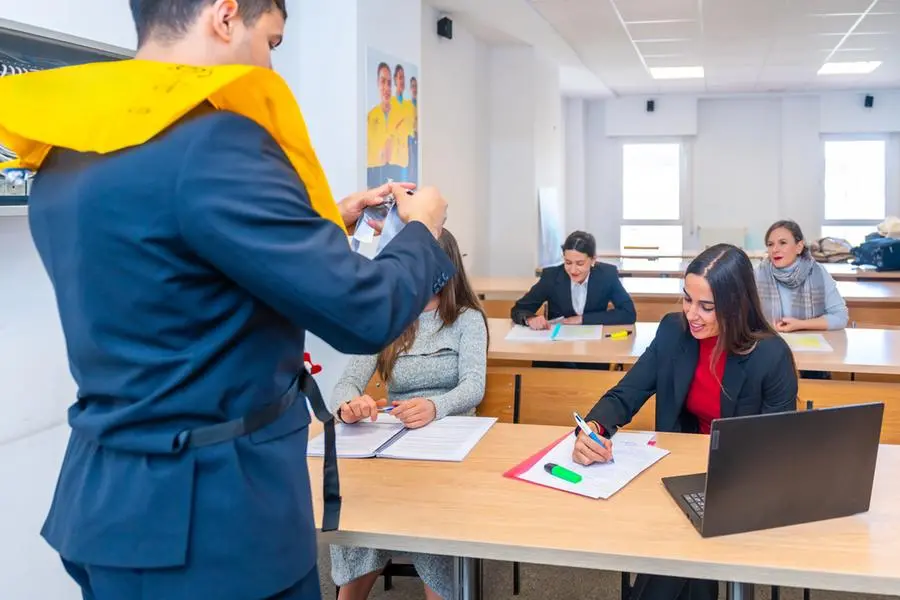PHOTO
Without doubt, aviation as a sector provides the most rapid global transportation network, facilitating air connectivity locally and internationally, apart from the huge funds it generates into the coffers of governments and the creation of massive jobs.
The sector falls into the category of the topmost areas of interest to any government in view of its sensitive functions as being responsible for the transportation of humans and cargoes across the world safely through the use of certified aircraft overflying the different airspace of the world.
As a result of the critical roles the sector plays as it affects transportation of human beings, the laws guiding the activities of air transport is universal. In other words, there are global rules and recommended standard practices guiding the sector.
Again, based on the enormous jobs required to make flight activities and aviation business in general safer and seamless, the different core professionals managing the critical areas like airport , air traffic control, air traffic management, aeronautical information/communications, air traffic engineers among others need to be regularly trained both within and outside the country to put them on the same pedestal with their counterparts in other climes.
As it is well known, the aviation sector anywhere is continually evolving, and technology has played a vital role in this development. In recent years, there have been significant advances in the use of technology to enhance safety, efficiency, and customer experience.
At the heart of the sector is the crucial role of training and development, which plays a pivotal role in shaping the future of aviation, training and development are therefore indispensable in the sector.
It is based on these that the international Civil Aviation Organisation (ICAO) is very emphatic about training and retraining of core aviation professionals and because aviation rules are global, there is no way Nigeria can operate differently from others.
Since all relevant professionals are spread across the aviation agencies, the managements of the agencies being led by the Nigeria Civil Aviation Authority NCAA as the regulator has always encouraged training and retraining both locally and international for the professionals to continue to be in tune with the evolving technologies.
It is based on this that the recent outburst of the Minister of Aviation and aerospace development, Festus Keyamo on his resolve to restrict trainings to local levels may not be totally acceptable.
The minister, while speaking during the facility tour of an Aviation Training Centre at the Prime Atlantic Safety Services in Ipara Remo, Ogun State, announced that the Federal Government has concluded plans to leverage the availability of accredited and certified training facilities located within the country for the development of manpower for the critical/technical personnel in the aviation ecosystem.
The move, according to the minister, was in line with the government’s plans to save the huge cost of foreign exchange spent offshore of training of aviation personnel in Europe, the United States and other parts of the globe.
Prior to his coming, the issue of training has always been mandatory though the policy had almost become bastardised by some professionals who, after collecting huge funds in foreign currencies to attend trainings overseas, often diverted such funds into their personal pockets without attending the trainings.
Despite the illegalities of the bad eggs, the government cannot afford to throw out the baby with the bath water in view of the importance of training to safety.
Again, the government may not be totally wrong in choosing to reduce unnecessary waste often incurred through overseas trainings which is not peculiar to aviation, but one obvious fact is that for the aviation sector to remain relevant on the international scene, foreign exposure in form of trainings cannot be totally taken away.
It is therefore pertinent for the minister to carry out a thorough analysis with the chief executives of the agencies who are in the positions to advise him on such areas that cannot totally survive outside foreign trainings.
Agreed, there are some trainings that can be locally obtained in some training institutions like the Nigerian College of Aviation Technology (NCAT), Zaria and Ilorin College of Aviation Technology where even foreign students come for trainings, there should still be room for foreign trainings.
Sincerely, while the government has the right to block all leakages through where public funds are being wasted, aviation should be treated with great caution in other to avoid an avoidable calamity that may occur in the aftermath of placing priority on cost reduction at the expense of foreign trainings that will engender safety and growth of the sector.
Copyright © 2022 Nigerian Tribune Provided by SyndiGate Media Inc. (Syndigate.info).





















